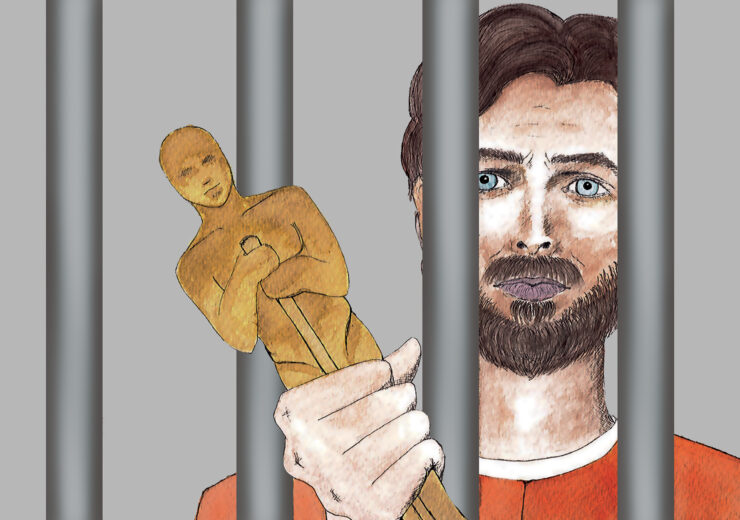A familiar story, retold once again
An exceedingly competent, handsome production of Frank Herbert’s epic 1965 sci-fi novel, and one that will probably satisfy most newcomers, but that falls short of expectations for a difficult-to-please, die-hard super-nerd.
I first read Dune, Frank Herbert’s 1965 epic, when I was 12 years old. It’s the perfect read for a young person with a growing imagination, as it’s not only a story full of intrigue and adventure but also has a bevy of maps, indices and a glossary to pore over. I developed a strong affection for the deeply-flawed 1984 film adaptation directed by David Lynch, and as I grew up, talk of a remake was nearly constantly swirling. There was the underwhelming 2000 made-for-TV miniseries and a documentary in 2013 about Alejandro Jodorowsky’s failed attempt to bring Dune to the screen back in the 70s, but another full-scale, big-budget adaptation of the original novel never materialized — until now.
Dune is the story of Paul Atreides, the young and inexperienced heir to the throne of House Atreides. He learns that a dark destiny has been laid out for him before he was even born by a shadowy organization that has been controlling the genetic bloodlines of royal families for eons. As Paul discovers more about who — and what — he is, his father, Duke Leto, is forced into a deadly trap by his enemies, the Harkonnens: take over the duty of ruling Arrakis, the most dangerous and inhospitable planet in the universe. But Arrakis holds many secrets, not least of which is the mystery of the spice melange. This substance accelerates consciousness — and may even trigger the next leap forwards in human evolution.
The story is familiar, but something that bugged me about Québéçois filmmaker Denis Villeneuve’s new film version was how certain details were conspicuously absent. Where were Feyd-Rautha, Princess Irulan and the Emperor? Why didn’t Gurney recite poetry and play the baliset? Why did the Shadout Mapes sheath that crysknife without drawing blood with it first? Why didn’t they set up Yueh’s Imperial Conditioning? Did they even show what happened to Thufir? Did anyone ever actually say the word “Muad’Dib”? So many questions that may, or, more likely, may not be answered in a few years’ time when the next instalment — let’s hope — actually gets made.
Perhaps Villeneuve wanted to wait until the second part to unveil some of these characters and plot points. Or perhaps, he wisely jettisoned as much extraneous material from Herbert’s lengthy, unwieldy opus as possible to create a concise, streamlined story that an average moviegoer could understand (unlike the 1984 film, which was so loaded with obscure language and details that Universal Pictures famously handed out cards to cinema patrons with a guide to the movie’s arcane terminology printed on them). But these are details that only a dedicated nerd (ahem) would’ve even noticed, and ultimately, that’s not who this movie is for.
Those hoping to see Villeneuve exploring some mind-bending, dreamlike imagery, as he has in films like Maelström and Enemy, may leave the theatre disappointed. His Dune has much more in common with the focused, detail-oriented realism of his films Incendies, Sicario and Prisoners. Herbert’s novel was originally written against the backdrop of the emerging drug culture of the mid-60s, and Jodorowsky and Lynch are both directors whose work is heavily influenced by surrealism. While the lack of psychedelic strangeness may be a letdown for longtime fans, it will also only help make the material more accessible to a wider audience today. If it leads to more people seeking out the book, it’s for the best.
The book is unique for telling its story through the thoughts and feelings of the characters. An average two-person conversation describes what each person is thinking at every moment and tracks their mental reactions to the other person’s subtleties of intonation and body language, which would be nearly impossible to translate to the screen. The Lynch film tried to replicate this dynamic by giving every character an interior monologue, delivered with voice-overs, but Villeneuve’s version makes the storytelling much more literal, sticking primarily to what can be physically seen and heard, and including a light smattering of subtitles here and there to explain the meaning of a particular hand gesture or look.
The performances are uniformly good, although my head-canon for what the characters should act and sound like gets in the way. Timothée Chalamet is all brooding angst and piercing stares as Paul and doesn’t have the same vulnerable, soulful quality that Kyle MacLachlan brought to the role. Rebecca Ferguson plays a more grounded and humane iteration of the Lady Jessica, far less regal and untouchable than Francesca Annis was in Lynch’s version. And while Stellan Skarsgård is certainly menacing as Baron Harkonnen, it’s hard to outdo Kenneth McMillan’s memorably bug-eyed, over-the-top turn as the villain in the 1984 film.
There were still a lot of things I liked in Villeneuve’s Dune. It had some gorgeous textures. I loved all the close-ups of rain, and sand, and tiny beads of moisture gathering on the ears of a desert kangaroo mouse. I liked all the subtle references to Leto’s father, the Old Duke. I loved the scene with the gardener and the palm trees. I liked most of the costumes and prop designs. Those might be minuscule details, but when the underlying story is so innately familiar, it’s the details that stand out, and I sincerely look forward to watching it again so that I can soak them all in a little more.




